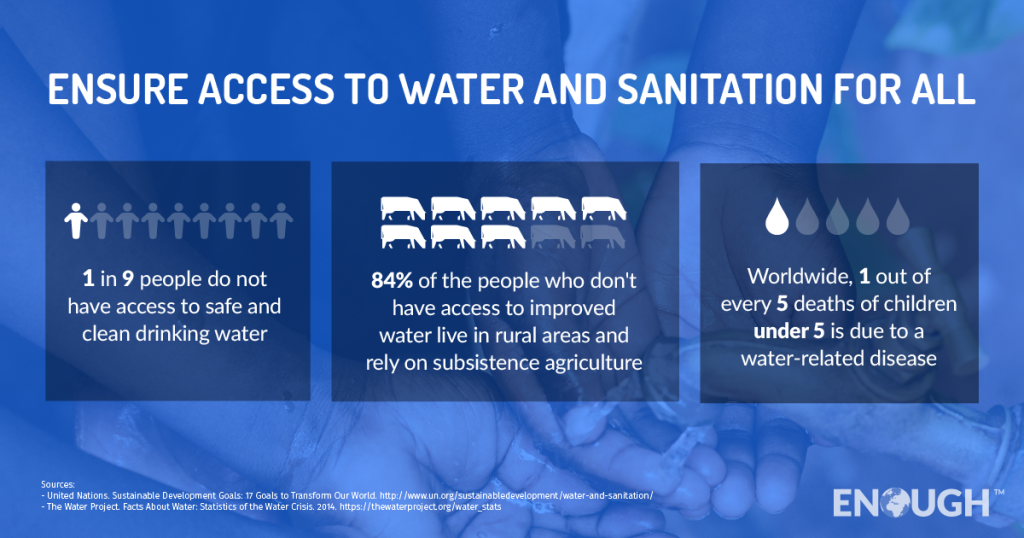Water and the Connection to Women’s Empowerment
Aug 31st, 2017 | By admin | Category: Water IssuesBy Suzanne York.
Water. When it comes to Mother Nature, it often seems these days as if we either have too much of it or not enough of this most precious of resources.As World Water Week kicked off in Stockholm (a gathering of water experts and professionals from across many sectors), the World Bank released a report finding that providing access to safely managed water and sanitation services by 2030 will require countries to spend $150 billion per year.
Some of the report’s findings include:
- In Nigeria, over 60% of the rural population live more than 30 minutes away from a working water source.
- In Indonesia, only 5% of urban wastewater is safely treated and disposed of, and children living in communities with open defecation during the first 1,000 days of life are 11 percentage points more likely to be stunted.
- In Bangladesh, E. coli was present in about 80% of water taps sampled, a similar rate to water scooped up from ponds.
- In Ecuador, 24% of the rural population drinks contaminated water; 21% of children are stunted and 18% are underweight.
Lack of access to clean water impacts children and women the most, and is exacerbated by poverty. Women and girls bear the disproportionate burden of fetching water in many countries around the world. Diseases from unclean water and poor sanitation greatly affects children and all too often leads to death.
As noted by Guangzhe Chen, Senior Director of the Water Global Practice of the World Bank, “Millions are currently trapped in poverty by poor water supply and sanitation, which contributes to childhood stunting and debilitating diseases such as diarrhea.
‘more people + more money = greater demand on water’
With global population still increasing for at least the next few decades, access to clean water will become an even greater concern than it already is today. The World Resources Institute pointed out the obvious that more people + more money (income) = greater demand on water. There are many solutions that can be implemented today to cope, from improved efficiency and infrastructure to less waste – in particular of groundwater. But effectively addressing that equation is paramount.
There is another solution to clean water and sanitation, and that is women’s empowerment – especially as it relates to education, family health, and family planning.
The World Bank’s research found a particularly stark contrast between urban and rural areas. Across the 18 countries, 75% of people who lack improved sanitation live in rural areas, and only 20% of rural inhabitants have access to improved water. The greatest need for education, contraception and healthcare is usually found in rural regions. There are 214 million women and girls worldwide who want to avoid or delay pregnancy but do not have access to contraception. Countries such as Ethiopia, Uganda, Ghana and Egypt are using community health workers to help meet the needs of rural communities.
Focus on Health
Dr. Richard Grossman is a retired OB-GYN and is currently in Ghana addressing women and child health. In his recent newsletter, he writes about the connection between child mortality and a healthy and stable population:
It may appear paradoxical that preventing deaths will help eventually to slow population growth, but it is true. One of the best-known demographers of Africa, John Caldwell, cited three requirements before people will choose to have smaller families: educating girls and women, making effective contraception available and reducing the under-five mortality. He said that people only consider having a small family when child mortality is less than 130 per 1000…or 13%. That means that one in seven children dies.
The UN is prioritizing access to water and sanitation. The Sustainable Development Goals address the human right to safe drinking water and sanitation, as well as women’s health and gender equality, and maternal and child health.
Healthy children start with healthy parents, especially of mothers. We cannot take clean water for granted. Too many lives are at risk. Empowering women pays dividends far beyond their individual lives and should be combined with efforts to ensure clean water and good sanitation.
Suzanne York is Director of Transition Earth.

![[photo: UN Women Watch]](http://populationgrowth.org/wp-content/uploads/2017/08/woman-fetching-water.jpg)
